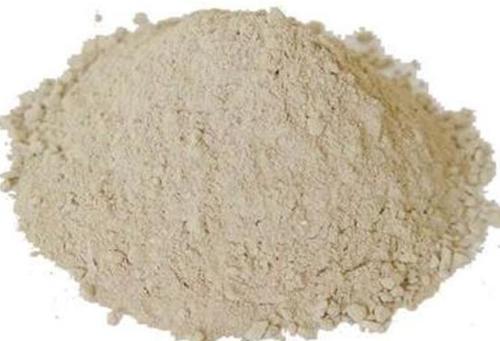What is a Refractory Cast Used For?
Sep 19, 2024Refractory castable is a key material widely used in various high-temperature industries due to its durability and resistance to heat. Whether it’s in furnaces, kilns, or other industrial processes, refractory castables are essential for providing thermal insulation and structural integrity under extreme conditions. But what exactly is a refractory cast used for, and why is it so important in modern industrial applications?
In this article, we’ll explore the characteristics of refractory castables, their uses, and how they contribute to the efficiency and safety of industrial operations.
Refractory castable is a specialized material designed to withstand extremely high temperatures while providing structural strength and protection. It is composed of refractory aggregates, binders (usually calcium aluminate cement), and additives that enhance its performance under heat. These materials can withstand temperatures exceeding 1500°C (2732°F), making them ideal for use in industries that operate under intense thermal conditions.
Unlike traditional bricks, refractory castables can be poured, molded, or troweled into place, which provides flexibility and ease of installation in complex or irregularly shaped spaces. This feature makes it a versatile option for lining furnaces, reactors, and other equipment exposed to high temperatures.
Refractory castables are used across a variety of industries where high heat and thermal insulation are critical. Below are some common applications where refractory castables play a key role:
Furnace Linings
One of the most common uses of refractory castable is for lining furnaces in industries like steel production, cement manufacturing, and glass processing. The refractory material provides insulation and helps maintain the internal temperature required for efficient production. The castable also protects the furnace structure from thermal and mechanical wear, ensuring a longer service life and fewer maintenance interruptions.
Kiln and Boiler Construction
Kilns, especially in industries like ceramics, lime, and cement production, often require refractory castables to ensure uniform heat distribution and prevent heat loss. The refractory cast lining inside kilns acts as a thermal barrier, keeping the heat concentrated within the production chamber. Similarly, in boilers used for power generation, refractory castables help protect against damage caused by continuous high-temperature operation.
Chemical Processing Units
In the chemical industry, refractory castables are often used to line reactors, gasifiers, and other equipment exposed to corrosive chemicals and high temperatures. The castable not only withstands thermal shock but also resists chemical attack, prolonging the operational life of the equipment.
Incinerators
Industrial incinerators, which handle the disposal of waste through combustion, require refractory castables to ensure the incinerator can withstand prolonged exposure to high temperatures. The castable lining insulates the structure, allowing for higher efficiency and more controlled waste combustion.
Petrochemical and Refining
Refractory castables play a vital role in the petrochemical and refining industries, where processes often involve high-temperature reactions. Lining towers, reactors, and other key pieces of equipment with refractory castable ensures safe operation and prevents heat loss during refining processes.
Refractory castables offer several advantages over other refractory materials like bricks or pre-shaped refractories. Here are some of the key benefits:
Ease of Installation: One of the primary advantages of refractory castable is its versatility in installation. It can be cast into complex shapes and hard-to-reach areas where traditional brickwork might not be practical.
Thermal Efficiency: Refractory castables provide excellent thermal insulation, reducing heat loss and improving the efficiency of high-temperature processes.
Durability and Strength: The robust composition of refractory castables ensures that they can handle the harsh environments of furnaces, kilns, and incinerators. They can endure mechanical wear, thermal cycling, and corrosive environments.
Customizable Formulations: Refractory castables can be customized to meet specific requirements, such as resistance to particular chemicals, higher thermal insulation, or enhanced mechanical strength. This allows industries to tailor the material to their specific needs, optimizing performance.
Cost Efficiency: Because of their longer service life and low maintenance requirements, refractory castables can offer a cost-effective solution for industrial operations. The ease of installation and ability to create a seamless lining can also reduce labor costs.
Choosing the right refractory castable depends on several factors, including:
Temperature Requirements: Different applications require different temperature ratings. Be sure to choose a castable that can withstand the maximum operating temperature of your system.
Chemical Resistance: If your operation involves exposure to corrosive chemicals or gases, select a refractory castable that offers resistance to these substances.
Thermal Shock Resistance: For processes that involve rapid heating and cooling cycles, opt for a castable that can withstand thermal shock without cracking or deteriorating.
Mechanical Strength: In some industries, equipment may be subject to mechanical wear or impact. Choose a castable with high mechanical strength if your operation involves such conditions.

Refractory castables are an indispensable material in high-temperature industries, providing essential insulation and structural support for furnaces, kilns, reactors, and incinerators. Their flexibility in installation, combined with their high durability and thermal efficiency, make them a go-to solution for heavy industrial operations.
From steel and cement production to petrochemical refining and waste incineration, refractory castables help industries operate efficiently and safely. For more information about our high-performance refractory castable products, visit our product page and discover how we can help improve your industrial processes.
Tags :